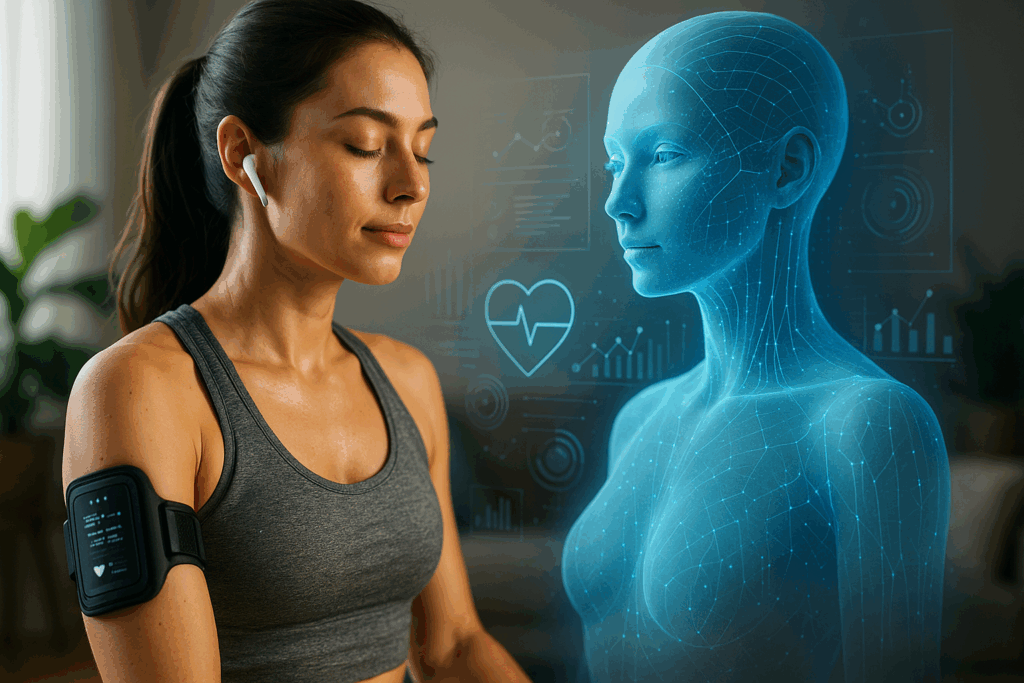
Artificial intelligence and wellness: a new paradigm for personal well-being
AI for daily wellness
In recent years, Artificial Intelligence (AI) has become a driving force behind technological innovation across multiple fields and the wellness sector is no exception. Far from being just a trend, AI is now a concrete tool for promoting a healthier, more sustainable, and more mindful lifestyle. Thanks to its ability to analyze vast amounts of data in real time, learn from individual behaviors, and generate targeted recommendations, AI is transforming the approach to personal health from reactive to proactive.
In contemporary wellness, well-being is a dynamic balance between body, mind, and daily habits. It is within this context that AI finds fertile ground: it can help prevent chronic conditions, enhance physical performance, support mental well-being, and even guide nutrition and recovery. The digital wellness revolution has begun and AI is one of its leading forces.
Case study: Neurofit and support in stress management
A concrete and emblematic example of how AI is impacting the wellness sector is Neurofit, a U.S.-based startup that has developed an app combining neuroscience and artificial intelligence to support the management of chronic stress. Neurofit stands out for its integrated approach: the app collects real-time biometric data through smartphones or wearable devices and uses it to generate a personalized “stress map” tailored to the user’s physiological and emotional profile.
Neurofit’s AI is able to learn from user behavior, continuously improving the recommendations it provides: breathing exercises, muscle relaxation techniques, posture and nutrition tips are dynamically adapted to help reduce daily physical and mental stress. According to a recent article published by Business Insider, the system has shown promising results in improving focus, mood, and sleep quality. The Neurofit case demonstrates that AI is no longer a future prospect, but an already tangible resource in personal well-being care.
Personalization and monitoring: the core of AI in wellness
One of the main advantages of integrating AI into wellness programs is the ability to offer fully personalized experiences based on real data rather than generic models. Through the use of wearables, apps, and biometric sensors, AI can continuously collect information such as heart rate, physical activity levels, sleep quality, heart rate variability (HRV), perceived stress levels, and even respiratory data.
All of this data, when properly processed, makes it possible to build a detailed user profile on which to base individualized wellness plans. For example, an algorithm might suggest adjusting bedtime or modifying the type of physical activity based on the user’s recovery state. In this way, wellness becomes an evolving, dynamic journey rather than a static routine where daily decisions are guided by reliable information. This data-driven approach reduces guesswork and maximizes long-term results.
AI in fitness: toward a new training experience
The fitness sector is also benefiting from the adoption of AI. Moving away from traditional methods, many platforms now offer adaptive training programs capable of adjusting intensity, duration, and type of exercise based on the user’s evolving performance. Algorithms analyze metrics such as power output, heart rate, VO₂ max, and recovery time to deliver more effective and safer workout sessions.
Artificial intelligence can also act as a “virtual coach,” providing real-time feedback on posture, technique, or exercise pace through cameras, sensors, or wearable devices. This evolution not only enables more effective training but also helps reduce the risk of injury, improve adherence to programs, and maintain long-term motivation. In a world where time is a limited resource, AI-optimized workouts are becoming an increasingly valued choice among athletes, enthusiasts, and industry professionals alike.
New frontiers of personalized well-being
AI goes beyond fitness and stress management. It is increasingly being integrated into mental well-being, mindfulness, personalized nutrition, and prevention programs. Predictive algorithms can identify at-risk behavioral patterns, suggest proactive lifestyle changes, and even anticipate critical moments such as fatigue spikes or drops in motivation. This enabling approach fosters a more mindful and empowered relationship with one’s own health.
In the corporate world, for example, employee wellness platforms are emerging that leverage AI to design tailored programs, improve the work environment, and support work-life balance. These solutions deliver tangible benefits in terms of reduced stress and increased productivity. Wellness, empowered by AI, is evolving from a “nice-to-have” perk into a strategic component of everyday life.
Opportunities, ethics, and future outlook
The adoption of artificial intelligence in wellness is not just a matter of technological efficiency—it’s an opportunity to rethink, in a deeper way, the relationship between humans and health. AI makes it possible to embrace a more holistic, dynamic, and person-centered model of well-being, where every decision is data-driven and every change is measurable.
However, the spread of these technologies also brings responsibilities: ensuring data protection, avoiding algorithmic bias, and guaranteeing accessibility for all are challenges that must be addressed with seriousness. If managed ethically and thoughtfully, AI can become one of the pillars of future wellness capable of improving quality of life not only on an individual level but also across society as a whole.
